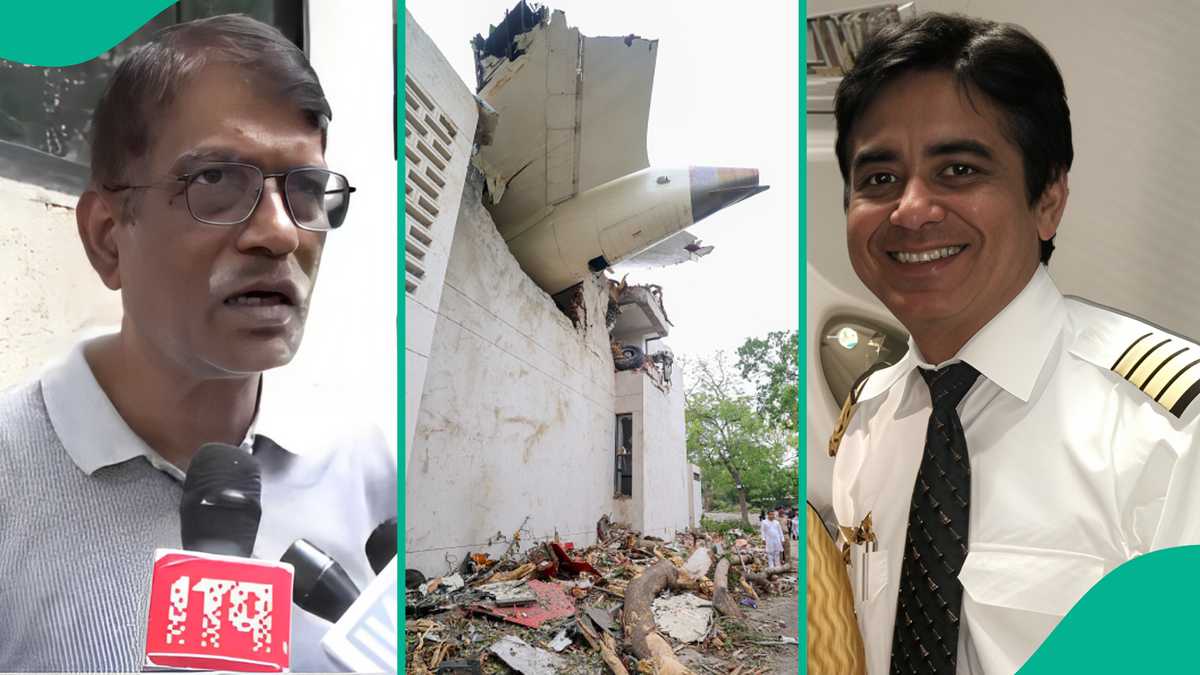Investigation into the Medical Records of Captain Sumeet Sabharwal
The tragic crash of Air India Flight 171 has prompted a thorough investigation into the background of the pilot, Captain Sumeet Sabharwal. The incident, which occurred on June 12 in Ahmedabad, India, resulted in the loss of over 260 lives, including 19 individuals on the ground. As the Aircraft Accident Investigation Bureau (AAIB) continues its inquiry, attention has shifted to Sabharwal’s medical history, raising questions about his mental health and potential impact on the disaster.
Captain Sumeet Sabharwal, who had been with Air India since 1994, was an experienced pilot with 15,000 hours of flight time before the accident. His extensive career and professional reputation made the crash all the more devastating for the aviation community. However, recent developments have revealed that investigators are now examining his medical records, particularly focusing on a history of depression and other mental health issues.
Tolong support kita ya,
Cukup klik ini aja: https://indonesiacrowd.com/support-bonus/
A Family Friend’s Perspective
Sanjeev Pai, a family friend of the late pilot, shared insights into Sabharwal’s character and personality. Speaking with Press Trust of India, Pai described him as a calm, peaceful, and highly professional individual. As a retired Wing Commander who had worked closely with Air India staff, Pai emphasized that no complaints were ever raised against Sabharwal. He noted:
“Captain Sumeet was a very good and experienced pilot. His death is a huge loss for Air India. He was such a calm and peaceful person, an excellent pilot. There were never any complaints about him—he was very professional in both his behavior and in his dealings with people.”
Pai’s account highlights the respect and admiration that Sabharwal commanded among colleagues and peers. His dedication to his profession and personal conduct left a lasting impression on those who knew him.
Neighbors and Colleagues Share Memories
In addition to family friends, colleagues and neighbors of Sabharwal have also spoken about his life and habits. According to reports, a neighbor who lived near Sabharwal in Jalvayu Vihar, Powai, described him as disciplined and reserved. He was known for maintaining a quiet and composed demeanor, which reflected his professional nature.
Sabharwal lived with his 90-year-old father, indicating a strong familial bond. His family had a deep connection to aviation, with his two nephews following in his footsteps by pursuing careers in the field. His older sister resided in Delhi, and it was clear that his passion for flying had influenced multiple generations within his family.
The Impact of the Tragedy
The crash of Air India Flight 171 has left a profound impact on the aviation community and beyond. It has sparked discussions about pilot health, mental well-being, and the rigorous standards required in the industry. While the AAIB’s preliminary report has not yet provided definitive conclusions, the focus on Sabharwal’s medical history adds a new dimension to the ongoing investigation.
As the search for answers continues, the aviation world mourns the loss of a dedicated professional whose life was devoted to ensuring the safety of passengers. The tragedy serves as a reminder of the complexities involved in air travel and the importance of comprehensive checks and support systems for pilots.
Ongoing Investigations and Future Steps
With the medical records under scrutiny, further analysis may shed light on whether any underlying health conditions contributed to the crash. Aviation experts and regulators will likely use this information to review and possibly enhance existing protocols for pilot health assessments.
The case of Captain Sumeet Sabharwal underscores the need for continuous evaluation of mental and physical health in high-stakes professions. As the investigation unfolds, the aviation community remains hopeful that lessons learned from this tragedy will help prevent similar incidents in the future.







